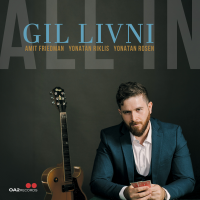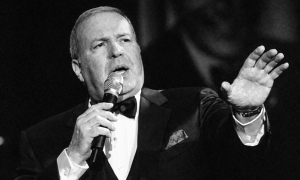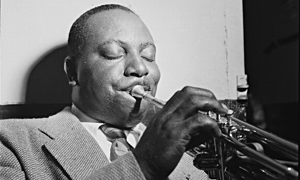Home » Jazz Articles » Book Review » Afro-Cuban Jazz
Afro-Cuban Jazz
 Afro-Cuban Jazz
Afro-Cuban Jazz Scott Yanow
Miller Freeman Books
ISBN: 087930619X
Considering the rising popularity of latin music, it seems only natural that someone would come out with a guide to Afro-Cuban Jazz—ideal territory for Miller-Freeman’s Third Ear series. Third Ear offers music listeners an in-depth look into genres that might not receive full coverage in more general guides. Scott Yanow’s Afro-Cuban Jazz is the latest addition to this catalog, which also includes books on Bebop, Swing, Alternative Rock, and Celtic Music.
Yanow, who also did the Third Ear Bebop and Swing guides, has written for numerous jazz publications. With Afro-Cuban Jazz, he presents an insightful and entertaining introduction to this important but, as he describes it “somewhat neglected” segment of jazz. Rather than approaching the material in an overly academic manner, though, he assumes the tone of a knowledgeable friend offering advice and providing informative background material on the performers. He reviews some of the artists’ available recordings along with a few harder to find ones to be aware of.
He uses a ten-point system for reviewing CDs, as opposed to the usual four- or five-star ratings. But there’s more than just details on the recordings; he also provides interesting information about the artists and their role in the Afro-Cuban scene. This helps the reader obtain an understanding of the music, along with its history.
While the latin influence in jazz music goes back to its earliest days, it wasn’t until the 1940s that it really became popular. Thanks to musicians like Dizzy Gillespie, Tito Puente, and Stan Kenton, the Afro-Cuban sound became a popular import and an important part of the jazz canon. But Yanow doesn’t limit himself solely to the obvious performers; lesser-known artists get covered as well. He includes important sidemen like José Mangual and Sonny Bravo, pre-1940s artists such as Don Azpiazu, and younger musicians worth checking out. There’s also a section of interviews and another part covering artists like Dave Brubeck and Sonny Rollins, who aren’t considered Afro-Cuban players, but incorporated elements of it into their music.
Let’s face it, though, pretty much any reference book is going to have its limits—certain things just aren’t going to make the cut. As a writer, you simply can’t cover all of the bases. Of course this doesn’t mean that artists not included aren’t worthwhile. Take The Buena Vista Social Club, for example. With all of their recent popularity, it seems logical that this volume would offer plenty of coverage. Beside a mention in the introduction, though, pianist Reuben Gonzáles is its only artist receiving an entry. Of course, some might argue that Cuban Son music isn’t exactly Afro-Cuban jazz. Fair enough. However, Yanow does have a very good entry for Carlos Santana, who seems to get shelved a lot in rock sections for an Afro-Cuban jazz artist.
Just because there are a handful of omissions, though, doesn’t detract from the book’s validity. Yanow knows his subject well and has a great appreciation for jazz music. Afro-Cuban Jazz offers interested listeners an excellent starting point for exploring Afro-Cuban sounds.
Tags
PREVIOUS / NEXT
Support All About Jazz
 All About Jazz has been a pillar of jazz since 1995, championing it as an art form and, more importantly, supporting the musicians who make it. Our enduring commitment has made "AAJ" one of the most culturally important websites of its kind, read by hundreds of thousands of fans, musicians and industry figures every month.
All About Jazz has been a pillar of jazz since 1995, championing it as an art form and, more importantly, supporting the musicians who make it. Our enduring commitment has made "AAJ" one of the most culturally important websites of its kind, read by hundreds of thousands of fans, musicians and industry figures every month.

























